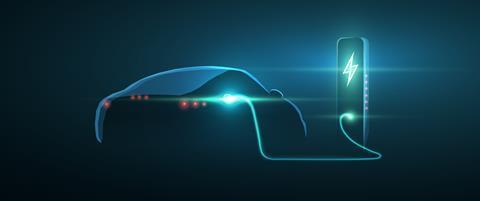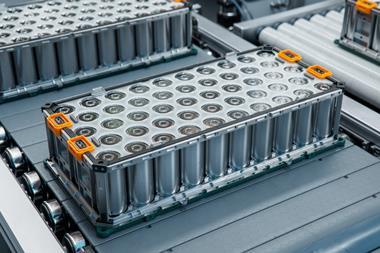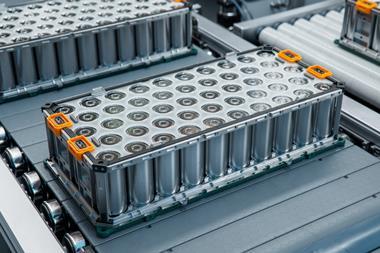Electric vehicle battery fires in South Korea raised public fears and sparked geopolitical tensions over supply chain risks. Here’s what risk managers can learn
In August, a Mercedes electric vehicle (EV) in an underground parking lot in Incheon, South Korea, some 34 km from Seoul, burst into flames.
The blaze damaged 880 vehicles, while 1,600 households suffered electricity and water supply outages for a week.

Perhaps most concerning was that the vehicle was neither charging nor fully charged when the blaze erupted.
Days later, a Kia EV6 burned out in a parking tower in South Korea’s South Chungcheong Province, with the blaze lasting more than 90 minutes before it could be controlled.
Managing “EV-phobia”
The knee-jerk reaction from the Seoul Metropolitan Government, keen to quell the spreading “EV-phobia,” as it started to be termed in the wake of the fires, led to a guideline that EVs should not be charged over 90 percent to enter underground parking garages.
In a tale familiar to many risk managers, the damage extended beyond the fire’s material toll and permeated the wider psyche of the public.
“I will never buy EVs, and won’t even park my car near EVs,” said Kim Jung-ki, a Korean man speaking to the Korea Joongang Daily after the fires. “EV batteries and charging stations have a high risk of catching fire, which can claim human lives and cause massive damage.”
“Mercedes-Benz Korea sincerely apologizes for the controversy caused by our vehicle,” said Mercedes-Benz Korea CEO Mathias Vaitl after the fire.
Supply chain risks and regional tensions
As investigations took place into how the Mercedes EV burst into flames, tensions rose when it was revealed that the vehicle was fitted with a battery from Chinese firm Farasis Energy, the 10th-largest battery maker in the world as of last year.
While it appears to be an innocuous supply chain decision for Mercedes, a German brand, to use a notable Chinese brand as its battery supplier, that was not how Koreans saw the situation.
“How could Mercedes, a so-called luxury brand, use batteries from a Chinese company that we haven’t heard of before for its EQE that costs more than 100 million won ($75,000)?” Kim Ji-hyuck, a Korean man who owns a car from the German brand, told the Korea Joongang Daily.
In 2022, a research group found that South Koreans have the most negative view of China among the countries surveyed, with 81 percent of South Korean respondents saying they have “negative” or “very negative” sentiments about China.
Geopolitical tensions between China and Korea are especially prickly around supply chain and manufacturing issues. Korea, the country of Samsung, LG, Hyundai, and Kia, is particularly proud of its electrical and automotive standards. Many Koreans harbor the belief that such high standards are not replicated in China.
Do EV batteries carry a greater risk?
But does any of this add up? Are EV batteries a spreading risk, or is the public picking through the ashes of the incidents and drawing conclusions that are too sweeping?
Research from EV FireSafe, which tracks passenger vehicle EV battery fires worldwide, found that based on global EV battery fires from 2010-2020, 0.0012% of EV batteries in passenger vehicles caught fire, while for internal combustion engine passenger vehicles there was a 0.1% chance of catching fire.
Overall, the body of research found that EV fires are very rare, and the risk for petrol and diesel vehicles is at least 20 times higher.
What are the major take-homes for risk managers?
The EV fires in Korea — and the initial reactions from the government and public — provide risk managers with some evergreen lessons.
These EV fires highlight the importance of being prepared for risks that extend beyond the immediate damage. Managing public perception is critical. The rapid spread of “EV-phobia” shows how quickly consumer trust can erode, leading to reputational harm, even when research finds such risks to be low.
Risk managers should work closely with communications teams to address fears and misinformation swiftly.
Second, supply chain scrutiny is essential. The backlash against Mercedes-Benz’s use of Chinese batteries underscores how geopolitical factors can magnify supply chain decisions. Understanding the political and cultural context of key markets can help mitigate such risks.










1 Readers' comment